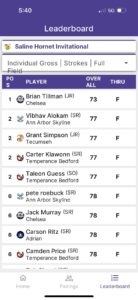(Chelsea Update would like to thank Joyce Williams for the information in this story.)
Are you one of the 33% (or one in three) adults in Michigan who are at risk for chronic kidney disease?
Only a fraction of them are identified, let alone diagnosed and treated. Most have diabetes and/or high blood pressure, which puts them at higher risk for both chronic kidney disease (CKD) and COVID complications. Those at risk could join the one million Michiganders who already live with CKD from a lack of early intervention.
The nonprofit National Kidney Foundation of Michigan (NKFM) is leading the Morris Hood III Chronic Kidney Disease and COVID-19 Complications Prevention initiative, which is based on the fact that CKD and COVID complications are closely connected.
Using federal COVID relief funds, the statewide initiative targets communities with health disparities, empowering African American/Black, Hispanic/Latino and rural residents to take early control of their kidney health by understanding their higher risk of developing CKD, contracting COVID and experiencing COVID complications. Black and African Americans are almost 4 times more likely than White Americans to have kidney failure while Hispanic/Latino Americans are 1.3 times more likely than non-Hispanic Americans to have kidney failure.
Working with health clinics, health insurance plans and other partners throughout the state, the NKFM is helping them identify those at risk for kidney disease, especially those who have had COVID and are at risk for kidney complications. Screening is crucial because CKD often has no symptoms in its early stages. They are also implementing ways to intervene early and follow patients in the health care system to prevent further complications. The three-year initiative is in its second year.
The NKFM has also partnered with the National Kidney Foundation to bring their “Are you the 33%?” campaign to Michigan. The digital awareness campaign focuses on reaching, educating, and empowering people in target communities. It features a quick interactive quiz (kidneymi.org/kidney_quiz) that tells someone if they are at risk and, if they are, it sends them information by email on what to do.
Michiganders have started accessing the quiz and finding out if they are at risk. The email information helps them take control of their kidney health and understand their increased risk for COVID complications.
The foundation also offers virtual programs, such as the nationally-certified Diabetes Prevention Program (readysetprevent.org); and Kidney PATH (nkfm.org/kpath) for learning to live with CKD. More distance learning programs are here (nkfm.org/distance-learning).
NKFM patient services (nkfm.org/patient services) includes support and resources, such as Supporting our Chronic Kidney Struggles (SOCKS). SOCKS is the NKFM’s virtual support group for individuals living with kidney disease. For more information, go here (nkfm.org/CKDsupportgroup) or call 800-482-1455, ext. 3060.
The initiative is named after the late Morris W. Hood III, a former member of both the Michigan House and Senate. After having diabetes as a child, Hood developed kidney disease. As the recipient of a kidney transplant in 2016, Hood was an advocate for people with CKD, and an ardent supporter of kidney disease awareness and prevention. Hood died in 2020 from COVID complications. He was 54.
It’s time to think about your own kidney health. Ask for a kidney health screening the next time you visit your doctor. If you are on Medicaid, you will need to renew your coverage before April 1. Be sure your address, phone number, and email address are up to date with MDHHS. Report any changes to your household or income.
The best way to update your information is go online to Michigan.gov/MIBridges, call your local MDHHS office, or call 855-789-5610. To find your local office, visit the MDHHS County Office website (michigan.gov/mdhhs/inside-mdhhs/county-offices). If you get a renewal packet, be sure to fill it out, sign the forms, and return it by the due date with any proof needed. Do not wait until you need health care to renew. MDHHS will reach out to you through mailed letters, the MIBridges website, emails, text messages and social media.
For more information, visit NKFM.org or call 800-482-1455.














